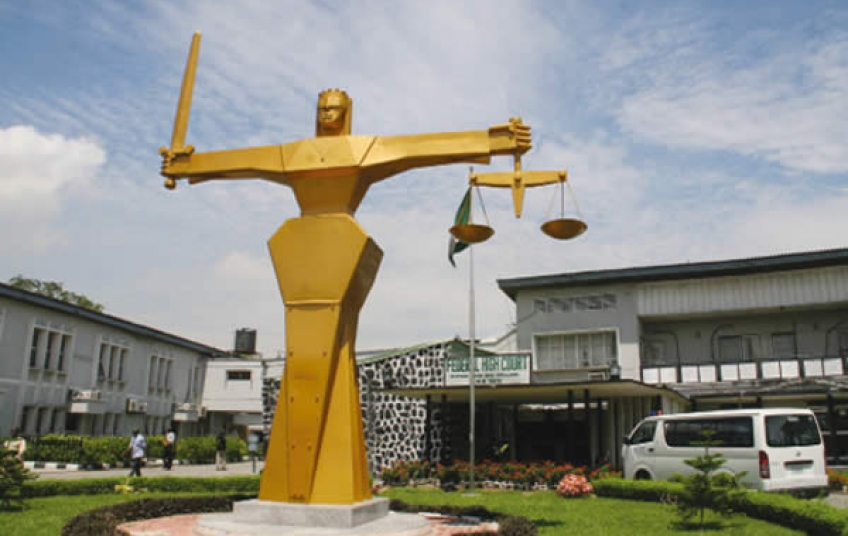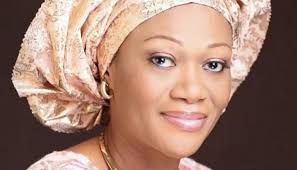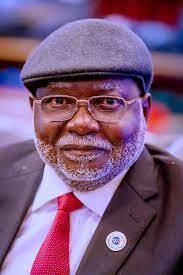Abuja, March 17, 2024 – The Socio-Economic Rights and Accountability Project (SERAP) has urged the Senate to reinstate Sen. Abdul Ningi who was suspended over his allegation of budget padding.
Ningi has alleged that the lawmakers padded the 2024 budget by irregularly inserting projects worth N3.7 trillion.
Ningi, who represents Bauchi Central at the Senate, was on Tuesday suspended for three months by the Senate for his claims that the 2024 budget was padded which the Senators said was false.
SERAP, a rights group, has advised the senate President to refer the allegations to appropriate anti-corruption agencies for investigation and prosecution.
In the letter dated Mach 16 March 2024 and signed by its Deputy Director, Kolawole Oluwadare, the organisation said: “Referring these allegations to appropriate anticorruption agencies would be consistent with the lawmakers’ oath of office and the letter and spirit of the Nigerian Constitution 1999 [as amended].”
SERAP said: “What Senator Ningi has done is a positive act of good citizenship. No whistleblower should ever be penalised simply for making a public interest disclosure.”
“Without inside information, corruption is hard to detect, prevent and combat. Rather than suspending Senator Ningi, the Senate ought to have used his allegations as a trigger for addressing the lingering problem of budget padding and corruption in the implementation of constituency projects.
“Referring the allegations to the Independent Corrupt Practices and Other Related Offences Commission (ICPC) and Economic and Financial Crimes Commission (EFCC) would improve public trust in the ability of the leadership of the Senate to ensure probity and accountability in the budget process.
“We would be grateful if the recommended measures are taken within 7 days of the receipt and/or publication of this letter.
“If we have not heard from you by then, SERAP shall consider appropriate legal actions to compel you and the Senate to comply with our requests in the public interest.
“By exercising strong and effective leadership in this matter, the National Assembly can show Nigerians that the legislative body is a proper and accountable watchdog that represents and protects the public interest, and is able to hold itself to account in the management of public resources.
“Encouraging whistleblowers to speak up improves public services and strengthens public accountability. Promptly referring the allegations to the Independent Corrupt Practices and Other Related Offences Commission (ICPC) and Economic and Financial Crimes Commission (EFCC) for investigations and prosecution would serve the public interest.
“Investigating and prosecuting the allegations of budget padding and corruption would end the impunity of perpetrators.
“It would improve transparency and accountability in the National Assembly, and build trust in democratic institutions with the ultimate aim of strengthening the rule of law.
“SERAP is concerned about the opacity and lack of accountability in the spending of public funds on constituency projects since the return of democracy in 1999.
“SERAP is seriously concerned that years of allegations of budget padding and corruption in the implementation of constituency projects have contributed to widespread poverty, underdevelopment and lack of access to public goods and services.
“Allegations of budget padding and corruption in the implementation of constituency projects have also continued to have negative impacts on the fundamental interests of the citizens in several communities and the public interest.
“SERAP is concerned that despite the country’s enormous oil wealth, ordinary Nigerians have derived very little benefit from the budget primarily because of budget padding and corruption in the implementation of constituency projects and the entrenched culture of impunity of perpetrators.
“Combating budget padding and discontinuing constituency projects would serve the public interest, improve access of Nigerians to basic public goods and services, and enhance the ability of ministries, departments and agencies to effectively and efficiently discharge their constitutional and statutory responsibilities.
“SERAP notes that Section 15(5) of the Nigerian Constitution requires public institutions to abolish all corrupt practices and abuse of power.
“Section 16(2) of the Nigerian Constitution further provides that, ‘the material resources of the nation are harnessed and distributed as best as possible to serve the common good.
“Section 13 of the Nigerian Constitution imposes clear responsibility on the National Assembly including the Senate to conform to, observe and apply the provisions of Chapter 2 of the constitution.
“Section 81 of the Nigerian Constitution and sections 13 and 18 Fiscal Responsibility Act constrain the ability of the National Assembly to unilaterally insert its own allocations in the budget without following the due process of law.
“Nigeria has made legally binding commitments under the UN Convention against Corruption to ensure accountability in the management of public resources.
“Articles 5 and 9 of the UN Convention against Corruption also impose legal obligations on the National Assembly including the Senate to ensure proper management of public affairs and public funds.
“Article 33 of the Convention requires government institutions including the Senate to ensure the protection of whistleblowers against any unjustified treatment. These commitments ought to be fully upheld and respected.
“The National Assembly has a constitutional responsibility to combat corruption, waste and abuse in its own spending if it is to effectively exercise its oversight functions and hold the government to account.
“It is a travesty and a fundamental breach of their fiduciary duties for members of the National Assembly to arbitrarily increase their own budget and to use the national budget as a tool to satisfy the lifestyle of lawmakers, and for personal gain.
“SERAP also urges you to put in place transparency and accountability mechanisms to ensure that the trillions of naira budgeted for constituency projects are not embezzled, misappropriated or diverted into private pockets.
“Lawmakers should feel safe to freely raise public interest concerns, just as Senator Ningi has done in disclosing information on alleged budget padding and corruption in the Senate.
“Senator Ningi is a whistleblower, who is protected under article 33 of the UN Convention against Corruption to which Nigeria is a state party.
“Senator Ningi is a whistleblower because of his public interest disclosures on alleged budget padding and corruption in the Senate in the context of carrying out his work as Senator.
“He is entitled to raise concerns about allegations of budget padding in the National Assembly to address the negative effects of corruption on access of millions of Nigerians to basic public goods and services and enjoyment of human rights.
“The allegations by Senator Ningi amount to public interest disclosures and can contribute to strengthening transparency and democratic accountability in the Senate in particular and the country as a whole.
“Suspension of Senator Ningi by the Senate followed a seriously flawed process and it amounts to retaliation.
“Senator Ningi’s status as a whistleblower is not diminished even if the perceived threat to the public interest has not materialised, since he would seem to have reasonable grounds to believe in the accuracy of the allegations of budget padding and corruption in the Senate.
“SERAP notes that freedom of expression is a constitutional and internationally recognized human right in Nigeria, and the country has enacted the Freedom of Information Act which grants Nigerians the right to seek and receive information such as the information about budget padding being disclosed by Senator Ningi.
“Whistleblowing is a fundamental aspect of freedom of expression and freedom of conscience and is important in tackling gross mismanagement of Nigeria’s commonwealth. Whistleblowing can act as an early warning to prevent damage as well as detect wrongdoing that may otherwise remain hidden.
“According to our information, Senator Abdul Ningi Mr Ningi, the Chairperson of the Northern Senators Forum (NSF), recently told BBC Hausa that the lawmakers sought the service of a private auditor and discovered irregularities in the budget.
“Senator Ningi reportedly said, ‘For example, we had a budget of N28 trillion, but after our thorough checks, we found out that it was a budget of N25 trillion. How and where did we get the additional N3 trillion from, what are we spending it for?
“According to BudgIT, a total of 7,447 projects culminating in N2.24 trillion were indiscriminately inserted in the 2024 budget by the National Assembly. 281 projects worth N491bn, and 3,706 projects within the range of N100–500m, worth 759bn were inserted in the budget.” (GBN)





